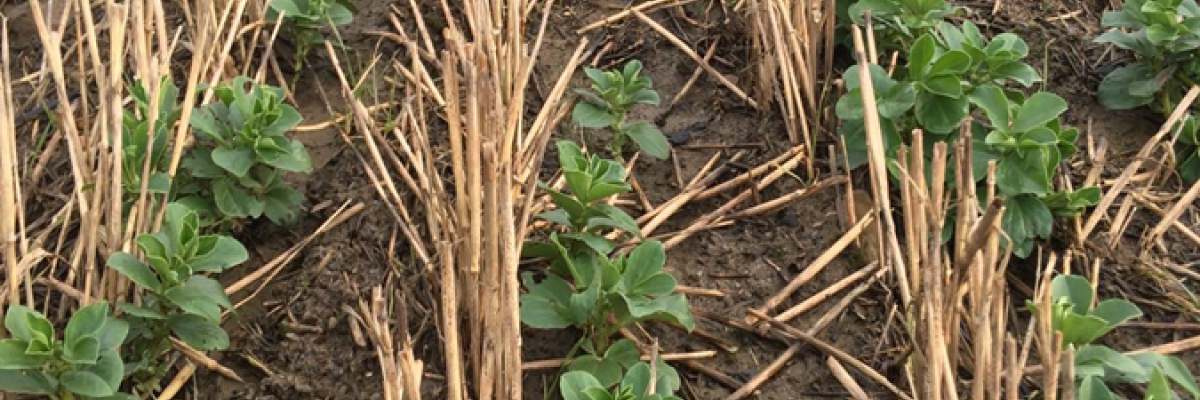

Transition to agroecological approaches
Durie Farms, Leven, Fife - Case Study
Download the PDF
This case study is one of five that were published by Scottish Natural Heritage as an output from the 'Transitions to agroecological systems: Farmers’ viewpoints' project (led by the Organic Research Centre) that aimed to provide insight into the transition process from conventional to agroecological approaches, as perceived by a selected group of UK farmers. The project looked at motivations, challenges and opportunities encountered, as well as perceived benefits and disadvantages associated with the transition. The case study focuses on Douglas Christie, a farmer in Scotland, who converted a third of the farm and the livestock enterprise to organic in 2006 and the rest of the conventional arable area has not been ploughed for about 20 years. This was driven by a desire to reduce fixed costs and to future proof the farm (primarily through reducing inputs and improving soil health and biodiversity). It describes direct drilling, growing cover crops, companion crops, and his main motivations.
- In addition to direct drilling, Douglas incorporated other conservation agricultural principles such as growing cover crops and increasing species grown on the farm for diversity. This has led to increased organic matter and improved soil health. He has also experimented with companion cropping and intercropping; mixing oilseed rape and cereals with various legumes, such as oats and beans, oilseed rape and peas, vetch and oilseed rape and peas and barley.
- Douglas has found it more important to focus on the monitoring for the long-term goals of the farm (improving soil fertility by getting more carbon into the soil), rather than short-term profitability, even if there are short-term set-backs i.e. yield penalties. Patience and flexibility are all important!
View other case studies and information on the project here.
Have a read of our blog by Cécile Smith which gives some more insights into farmer experiences.
Read more about Douglas's farming practices, benefits and challenges in this report produced by Soil Association Scotland as part of an Innovative Farmers field lab.
